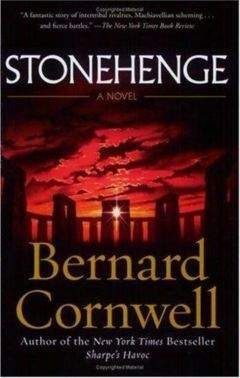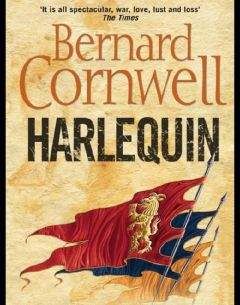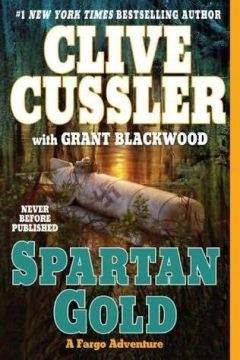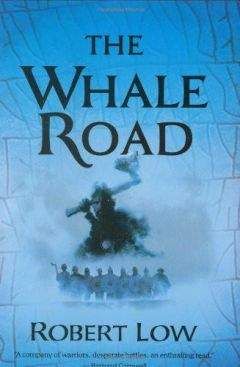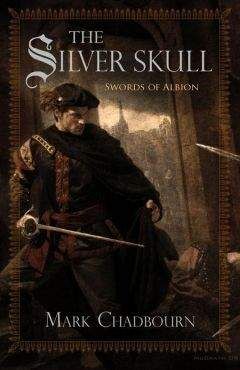In the afternoon, when he had reached the high crest from where he could stare far across the western forests, Saban heard the faint sound of ox horns blowing. That ominous booming told him that Ratharryn's hunters had been released. They would be carrying glowing embers in pots so that if they chose to stay in the woods at night they could build vast fires that would deter the spirits and the beasts. Saban could use no such defence. He had only Slaol's help and one short-bladed knife of brittle flint.
He spent a long time searching for a tree that would suit Slaol's purpose. He knew Jegar's dogs would be lunging along the path, but he had a long start and time enough, and after a while he settled on an oak tree that grew low and broad, though halfway up its trunk there was a space from which no branches sprang. A man could easily climb the first length of the tree, then he would need to leap to catch hold of a convenient branch that was the thickness of a man's arm. That branch made the perfect handhold, and if Jegar thought Saban was hidden in the upper leaves of the tree he would leap for it. Saban leapt for it now, and held on tight as his feet scrabbled for purchase on the trunk. Then he hauled himself up and straddled the tree's narrow limb.
He sat facing the oak's trunk, said a brief prayer to the tree so that it would forgive the wound he was about to inflict, then used his knife's tip to gouge a narrow slit along the branch's topmost surface. Then, when the cut was wide and deep enough, he jammed the flint blade into the wood so that its wicked, white-flaked edge stood proud of the bark. He did his work well, for the blade sat firm in the tree's grip when he was finished. He spat on the flint to give it luck, then dropped down from the branch. He looked up to make sure that his small trap was invisible, then collected and hid the small scraps of freshly chipped wood that had fallen by the oak's bole.
He ran downhill to find the stream that flowed at the ridge's foot and once there he waded through the shallow water because everyone knew that spirits could not cross water. While he was in the stream his own spirit would shrink into his body, thus leaving no trace for Jegar's dogs. He waded a long way, occasionally muttering a prayer to placate the stream's spirit, then climbed back up the hill to discover a place where he could rest.
He found a place where two branches sprang from an elm tree's trunk, and he placed smaller branches across the two to make a platform where he could lie safely. He was hidden, but high enough to see between the leaves to where the white clouds rode the bright sky, and, by craning his neck, he could just see a patch of mossy ground at the tree's foot. For a long while nothing happened. The wind rustled the leaves, a squirrel chattered its teeth and two bees drifted close. Somewhere a woodpecker rattled at bark, stopped, began again. A rustle of dead leaves made Saban peer down, fearing discovery, but all he saw was a fox carrying a dabchick in its jaws.
Then the living noises of the woods, all the small sounds of claw and beak and paw, just stopped, and there was only the sigh of the wind among the leaves and the creak of the trees. Everything that breathed was crouching motionless because something new and strange had come. There was danger; the forest held its breath, and Saban listened until at last he heard the noise that had silenced the world. A hound bayed.
It was a warm day, but Saban's naked skin was suddenly chill. He could feel the hairs prickling at his neck. Another dog howled, then Saban heard men's voices far away. The men were high above him on the slope. Hunters.
He could imagine them. There would be a half-dozen young men, Jegar their leader, all tall and strong and sun-browned, with their long hair twisted into hunter's braids and hung with feathers. They would be peering up the oak tree, leaning on their spears and calling insults to where they thought Saban was hiding. Perhaps they loosed a few arrows into the leaves, hoping to drive him down so they could walk him back to Ratharryn and parade his shame in front of his father's hut, but in a small while they would become bored and one of them — let it be Jegar, Saban prayed — would clamber up the oak's trunk to find him.
Saban lay, his eyes closed, listening. Then he heard a shout. Not just a shout, but a yelp of protest and pain and anger, and he knew his small trap had bitten blood. He smiled.
Jegar fell from the tree, cursing because his right hand was cut deep across the palm. He shrieked and forced his bleeding hand between his thighs as he bent over to alleviate the agony. One of his friends placed moss on the wound, and bound the hand with leaves, and afterwards, furious, they rampaged along the ridge, but neither they nor their howling dogs came close to Saban. They followed his spirit down to the stream, but there the hounds lost him and after a while they abandoned the hunt. The sound of dogs faded and the myriad small sounds of the woods were heard again.
Saban grinned. He relived the moment when he had heard the scream and he thanked Slaol. He laughed. He had won.
He had won, yet still he did not move. He was hungry now, yet he dared not forage in case Jegar was still stalking the slope, so he stayed on his small platform and watched the birds fly home to their nests and the sky turn red with Slaol's anger because the world was being given over to Lahanna's care. The chill seeped up from the stream. A deer and her fawn stepped slow and delicate beneath the ash as they went to the water and their appearance suggested there were no hunters concealed on the ridge above, yet still Saban did not move. His hunger and thirst could wait. In the gaps between the high leaves he could see the sky turning smoky and misty, then the first star of Lahanna's flock appeared. The tribe called that star Merra and it reminded Saban that all his ancestors were gazing down, but it also brought fears of those folk who had died in shame and who were now rousing from their day sleep to let their famished spirits wander the dark trees. Strange claws were being unsheathed and rabid teeth bared as the night terrors of the forest were unleashed.
Saban hardly slept, but instead lay and listened to the noises of the night. Once he heard the crackling of twigs, the sound of a great body moving through the brush, then silence again in which he imagined a monstrous head, fangs bared, questing up into the elm. A scream sounded higher on the ridge, and Saban curled into a ball and whimpered. An owl screeched. The boy's only comforts were the stars of his ancestors, the cold light of Lahanna silvering the leaves and his thoughts of Derrewyn. He thought of her a lot. He tried to conjure up a picture of her face. Once, thinking about her, he looked up and saw a streak of light slither across the stars and he knew that a god was descending to the earth which he took to be a sign that he and Derrewyn were destined for each other.
For five days and nights he hid, foraging only in the half-light of dawn and dusk. He found a clearing at the bottom of the ridge where the stream had made a wide bend in its course and there he found chervil and garlic. He plucked sorrel and comfrey leaves, and found some broom buds, though they were bitter for their season was almost done. Best of all were the morels that he found higher on the ridge where a great elm had fallen. He carried them back to his platform in the ash and picked the wood-lice from their crannies before eating them. One day he even tickled a small trout up from the weeds of the stream and gnawed greedily at its raw flesh. At night he chewed the gum that oozes from birch bark, spitting it out when all the flavour was gone.
Jegar had given up the hunt, though Saban did not know that, and one twilight, seeking for more morels by the rotting elm, he heard a footfall in the leaves and froze. He was concealed by the fallen tree, but the hiding place was precarious and his heart began to thump.
A moment later a file of Outfolk spearmen went past. They were all men, all with bronze-tipped spears and all had grey tattooed streaks on their faces. They had no dogs with them, and they seemed more intent on leaving the ridge than searching for prey. Saban heard them splash through the stream, heard the flutter as the waterbirds fled their presence, then there was silence again.
The last night was Saban's worst. It rained, and the wind was high so that the noises of the trees were louder than ever as they tossed their heads in the wet sky. Branches creaked and, far off, Rannos the god of thunder tumbled the blackness. And it was dark, utterly dark, without a scrap of Lahanna's light piercing or thinning the clouds. The darkness was worse than a cold hut, for this was a limitless night filled with horrors and in its black heart Saban heard something huge and cumbersome crash through the woods and he huddled on his platform thinking of the dead souls and their yearning for human flesh until, wet, cold and hungry, he saw a grey dawn dilute the damp darkness above the ridge. The rain eased as the sky brightened, and then the ox horns sounded to say that the first ordeal was done.
Twenty-two boys had left Ratharryn, but only seventeen returned. One had vanished and was never seen again, two had been found by hunters and had been driven back to Ratharryn, while two more had been so terrified of the darkness of the trees that they had willingly gone back to their humiliation. But the seventeen who gathered at Slaol's temple were permitted to tie their hair in a loose knot at the nape of their necks and then they followed the priests down the track that led to Ratharryn's entrance and their path was lined with women who held out platters of flat bread and cold pork and dried fish. 'Eat,' they urged the boys, 'you must be hungry, eat!' But hungry as they were, none touched the food for that too was an ordeal, though an easy one to survive.
The men of the tribe waited beside a raging fire inside the great wall and they thumped their spear butts on the ground to welcome the seventeen. The boys still had two tests to face, and some could yet fail, but they were no longer jeered. Saban saw Jegar, and saw the leaves bound with twine on his hand, and he could not resist dancing a few steps of victory. Jegar spat towards him, but it was mere petulance. He had missed his chance and Saban had survived the woods.
The boys had to wrestle against men for their next test. It did not matter if they won or lost, indeed no one expected a half-starved boy to beat a full-grown man, but it was important that they fought well and showed bravery. Saban found himself pitted against Dioga, a freed Outfolk slave noted for his bear-like strength. The crowd laughed at the mismatch between boy and man, but Saban was faster than any of them expected. He slipped Dioga's rush, kicked him, slipped past him again, slapped him, jeered at him and landed one blow that stung Dioga's face and then the bigger man at last caught the boy, threw him down and began to throttle him with his big hands. Saban clawed at Dioga's tattooed face, attempting to hook his fingers into the man's eye sockets, but Dioga just grunted and bore down with his thumbs on Saban's windpipe until Gilan hit him with a staff and made him let go. 'Well done, boy,' the high priest said. Saban choked as he tried to answer, then sat with the other boys and heaved breath into his starving lungs.
The seventeen boys endured the fire last. They stood with their backs to the flames as a priest heated the sharpened tip of an ash branch until it was red hot, then placed the glowing tip on their shoulder blades and left it there until the skin bubbled. Gilan stared into their faces to make certain they did not cry. Saban sang the rage song of Rannos as the fire scorched his back, and the heat was such that he thought he would have to cry aloud, but the pain passed and Gilan grinned his approval. 'Well done,' the high priest said again, 'well done,' and Saban's heart was so full of joy he could have flown like a bird.
He was a man. He could take a bride, own a slave, keep his own livestock, give himself a new name and speak in the tribal meetings. Neel, the young priest, presented Saban with the chalk ball that was his childhood's spirit shelter and Saban danced up and down on it, breaking and powdering the chalk as he whooped with delight. His father, unable to conceal his pleasure, gave him a wolfskin tunic, a fine spear and a bronze knife with a wooden handle. His mother gave him an amulet of amber, which had been a gift to her from Lengar, and Saban tried to make her keep it for she was sick, but she would not take it back. Galeth gave him a yew longbow, then sat him down and tattooed the marks of manhood on his chest. He used a bone comb that he dipped in woad, then hammered into Saban's skin; the pain meant nothing to Saban for now he was a man. 'You can take a new name now,' Galeth said.
'Hand-Splitter,' Saban said jokingly.
Galeth laughed. 'I thought that was your work. Well done. But you've made a lifelong enemy.'
'An enemy,' Saban said, 'who will find it hard to hold a bow or wield a spear.'
'But a dangerous man,' Galeth warned him.
'A crippled man now,' Saban said, for he had heard that the flint knife had bitten right through the sinews of Jegar's hand.
'A worse enemy for that,' Galeth said. 'So will you change your name?'
'I shall keep it,' Saban said. His birth name meant Favoured One and he reckoned it was apt. He watched the blood and woad trickle down his skin. He was a man! Then, with the sixteen others who had passed the ordeals, Saban sat down to a feast of meat, bread and honey, and while they ate, the women of the tribe sang the battle song of Arryn. By the meal's end the sun was going down and the girls who had been sequestered all day in the Temple of Lahanna were taken to the Temple of Slaol. The tribe lined the path from the settlement to the temple and they danced and clapped as the seventeen men followed the girls who would now become women.
Derrewyn was not among the girls. She was too valuable as a bride to be given to that night's revelry, but next morning, as Saban walked back into the settlement to find a place where he could build his own hut, Derrewyn greeted him. She gave him one of her precious necklaces of white sea-shells. Saban blushed at the gift and Derrewyn laughed at his confusion.
And that same day Gilan began to plan how the eight stones would be placed.
—«»—«»—«»—
The new men were not expected to work on the day after their ordeals, so Saban wandered up onto the hill to watch Gilan begin his work in the Old Temple. Butterflies were everywhere, a host of blue and white scraps being blown across the flower-studded grass where a score of people were digging the chalk with antler picks to make ditches and banks that would flank a new sacred path leading to the temple's gate of the sun.
Saban walked to the western side of the temple and sat on the grass. His new spear was beside him and he wondered when he would first use it in battle. He was a man now, but the tribe would expect him to kill an enemy before he was reckoned a proper adult. He drew out the bronze knife his father had given him and admired it in the sunlight. The blade was short, scarce as long as Saban's hand, but the metal had been incised with a thousand tiny indentations that made a complex pattern. A man's knife, Saban thought, and he tilted the blade from side to side so that the sun flashed from the metal.
